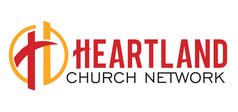|
In the past two weeks, I have talked about change in the life of the local church. I pointed out the reality that pastors have to be better leaders than do leaders in other segments of life, and that the number one person a pastor must lead well is himself. This week I want us to remember that as we lead change in the church, we need to make sure it is the right change, at the right time, and it is done in the right way. This week I want to talk about the challenges we face in making the right changes.
There are several things that make it hard to know what the right changes are. One is the reality that there are no two churches exactly alike! A church is a living organism-organization that is made up of unique people. There was a time in our nation’s history when being a Great Commission Baptist Church (GCB) could be clearly and uniformly described. Those days are long gone. Although we share a common theology, the churches in our own small part of GCB life that we call the Heartland Church Network are very diverse: we have large and small churches; new and old churches; urban, inner-city, small town, and rural churches; churches that worship in English, Spanish, Arabic (Neur and Bari), Zomi, Karen, Creole, Chinese, Korean, Russian / Ukrainian, and Nepalese; churches that are predominantly Africa-American and Native-American. Although principles transcend time and culture, the application of those principles can look very different from one culture to another. There was a time in GCB life that when a church found something that worked really, really well in their church, their pastor was hired by our Sunday School Board. He wrote a book or guidelines on how to do what he did in his church. Pastors and church leaders were trained on how to do that specific program. They ran the program. And if it was done well, it usually worked. Those days are long gone. This means that not only does a pastor have to be a better change agent, he also has to be a better strategic thinker. But this has to start with a strong prayer life. One that is hyper-sensitive to what is happening in the life of his church members (where is God leading them) and his community (what are the opportunities and needs). If that isn’t enough to frustrate you, let me point out that we live in a constant state of information overload. In simpler days, our problem was finding enough information to make an informed decision. Today we have to filter through the volumes of information that are available at our fingertips as we google the world’s answers. Everything you read is not relevant to your context. We even have to wade through disinformation as we sort out what is true as well as what is relevant. Not everything we read on the internet is true—no matter how fancy the web site! When I am searching, I will also find a lot of what I will call uninformed information. The number of bloggers is almost unlimited. Some of them know what they are talking about, but some are just suffering from undelivered speech. I also find non-critical thinkers telling you why their church is growing. These will be people who are in the midst of the forest and can’t see the forest for the trees; however, they are willing and they think they are able to tell you “all about the forest.” I will briefly mention a third complicating factor: the rate and level of change that is occurring in our culture. What might have been the right change in January 2020 suddenly became the wrong change in March. We had to be willing to pivot on a dime as we moved quickly into unchartered territory. No one had a map! Well, that’s not actually true. God has the map. Which brings me back to your prayer life. "For I know the thoughts that I think toward you, says the Lord, thoughts of peace and not of evil, to give you a future and a hope. Then you will call upon Me and go and pray to Me, and I will listen to you. And you will seek Me and find Me, when you search for Me with all your heart." –Jeremiah 29:11-13 Bottom line: I strongly encourage every pastor to lead his church in times of focused prayer, seeking God’s leadership as we navigate uncharted waters. Having done that, I would encourage you to invite an experienced outside consultant, like your Associational Mission Strategist, to work with your leadership team to facilitate some simple, but revealing, strategic exercises. Then, with some options in hand, you can prayerfully and carefully begin to identify the right time and the right way—which we will look at in the next two weeks.
1 Comment
|
AuthorRetired in April 2022, Mark R. Elliott served as a Director of Missions (Associational Mission Strategist) in Western Iowa and Eastern Nebraska for almost three decades. He is a strong advocate for obedience and Biblically based disciple making. As such, he knows that making healthy disciples requires Christian leaders to be constantly pursuing spiritual maturity—be lifelong learners. Because of the time constraints of ministry, most pastors focus their reading list on resources that assist them in teaching and preaching the Word of God. As such, books focusing on church health, leadership development, and church growth tend to find their way to the bottom of the stack. With that reality in mind, Mark has written discussion summaries on several books that have helped him to personally grow in Christ and that tend to find themselves on the bottom of most pastor’s stack. Many pastors have found them helpful as they are able to more quickly process great insights from other pastors and authors. Archives
April 2022
Categories |
Looking for something? |
© COPYRIGHT 2024. ALL RIGHTS RESERVED.
|




 RSS Feed
RSS Feed
